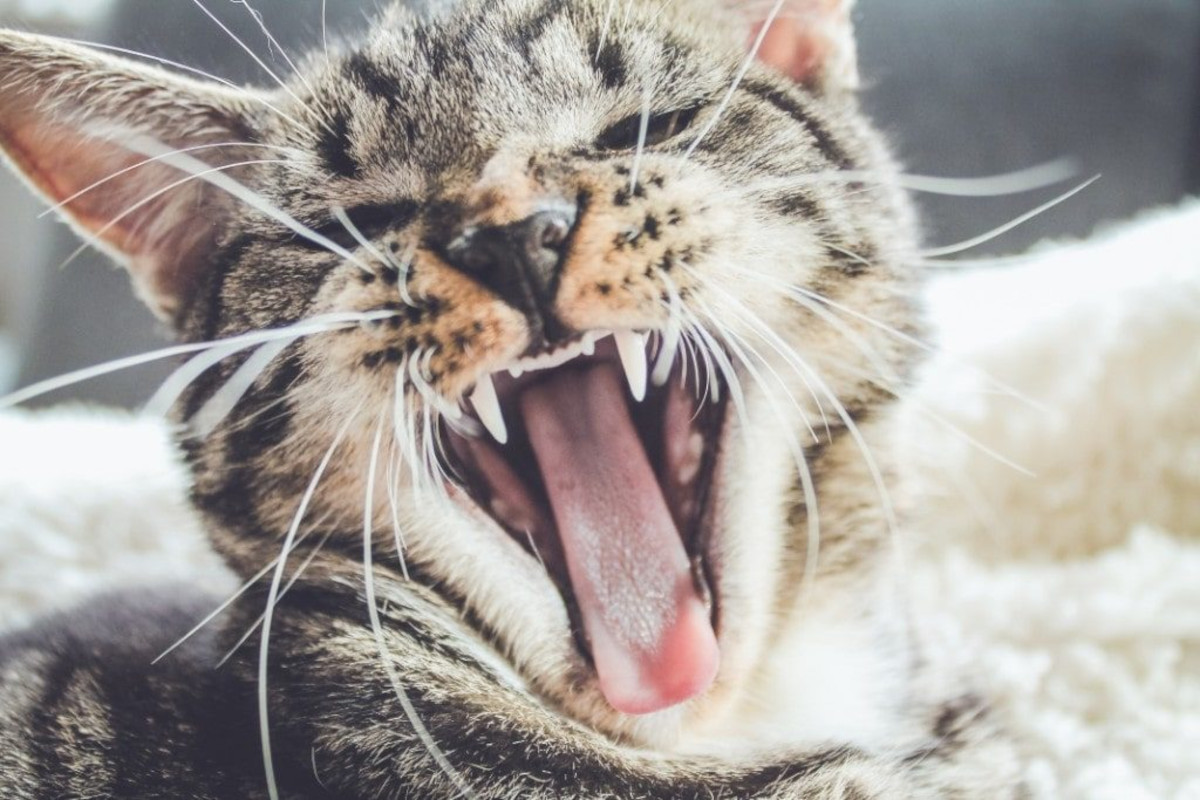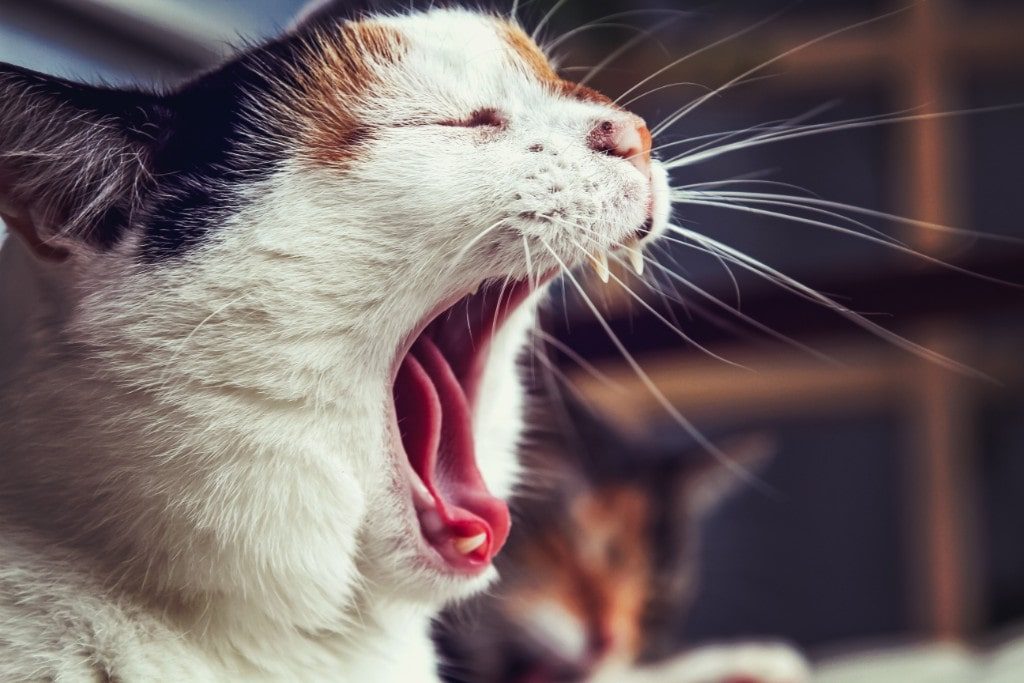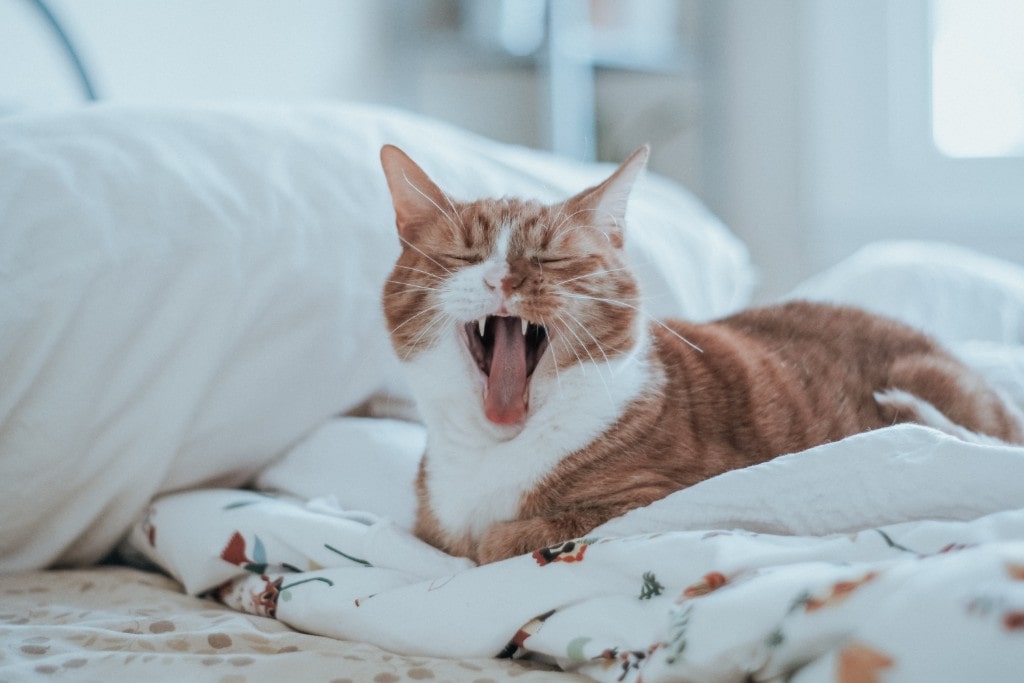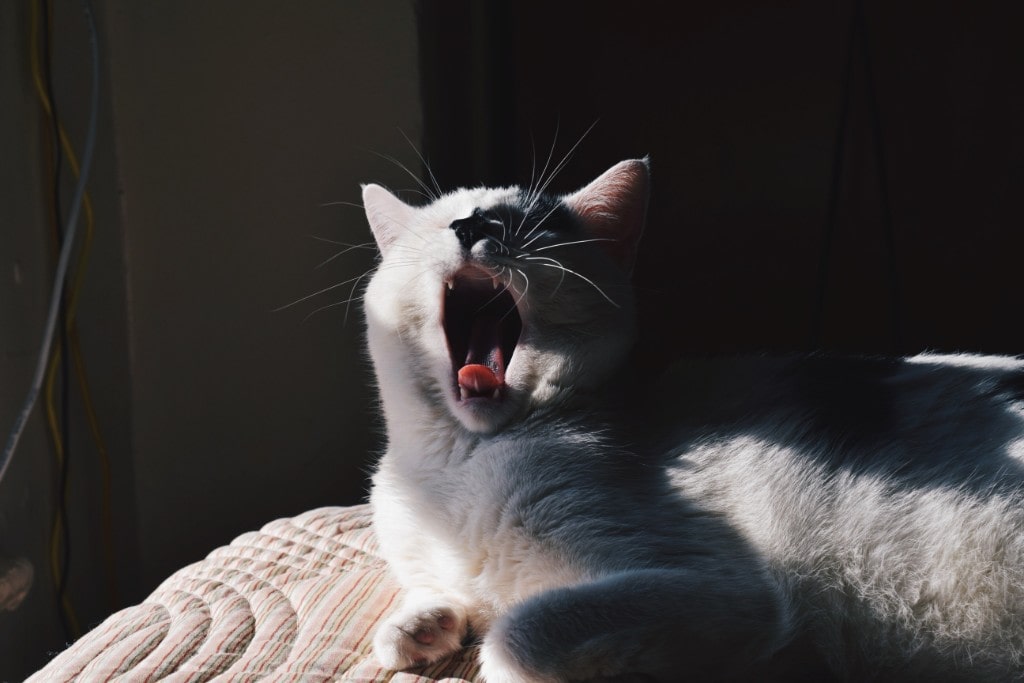Your Cat Has Bad Breath? Here is Why You Should Be Worried

Bad breath or halitosis in cats can be caused by all sort of issues. If it’s a smell that makes you take a step back that’s an indication that something may be wrong. A healthy cat’s breath is never offensive. Your cat has bad breath? Here is why you should be worried…
Prevention of Bad Breath
You can keep your cat’s teeth clean by brushing their teeth from an early age. Or providing them with dental treats and chews designed to reduce tartar build-up. There are also oral health diets to choose which combine mechanical and nutritional aids to keep mouths in the best dental health.
Other dental care includes limiting the amount of tinned food provided. Cats need to keep their jaws and bones strong by eating dry food too. Cheap cuts of meat such as chick steak or raw chicken wings are ideal to get your cat to really chew food. Preventing plaque by diet will avoid calcified deposits having to be removed by your vet.
Dental cat toys and water additives can help remove plaque from teeth. And give a fresh smell to your cat’s breath. Regular check-ups and teeth cleaning by you or at your local vets will prevent most dental issues.

Reasons for Bad Breath
When you cat’s breath smells it could be due to:
- Periodontal disease – inflammation and loss of supporting structures of teeth as tissues become diseased
- Foreign body – objects that may be lodged in the throat, inhaled into the airway, or swallowed and stuck in the stomach
- Kidney disease – persistent loss of function over time resulting leading to anaemia
- Liver disease – lack of appetite and stress are just two factors than can cause fat to mobilise in the liver, quickly developing into malnutrition
- Diabetes – high blood glucose concentrations need prompt and effective treatment
- Respiratory illness – viral or bacterial agents are responsible for upper respiratory infections
- Inflammation of the throat – difficulty swallowing indicates an inflamed throat where abscesses may form
- Trauma – a physical injury or wound can range from minor to life-threatening
- Cancer – this leading cause of death starts as a lump that rapidly grows and can spread to many parts of the body

Symptoms of Bad Breath
Dental issues may produce the following symptoms:
- Cat smelly breath
- Not eating because of the pain
- Weight loss
- Drooling and dribbling
- Reluctance to washing
- Pawing at the mouth
- Red gums and bleeding
If the problem is non-dental the following sign may become apparent:
- An increase in thirst and urination – indicating possible diabetes, hyperthyroidism, or renal failure
- Facial swelling – ulcers, growths, tumours all need to be ruled out
- Sickness and diarrhoea – could be due to inflammatory bowel disease, ulcers, or poisoning
- Loss of weight – may be due to the pain experienced whilst trying to eat
- Lethargy – anaemia, viral infections, or liver and kidney failure could be the cause

Diagnosis of Bad Breath
As soon as you’ve determined your cat has bad breath consistently, you’ll need to book a vet’s appointment. If you take action quickly any minor problems won’t escalate.
Your vet will then:
Examine the mouth – This will determine if there are any obvious foreign bodies that can be removed immediately
Carry out blood counts, analyse urine, and complete a biochemical profile – To check organ function and to rule out infection
Take x-rays – A conclusive result of damaged dental roots, bones, abscesses, or tumours which may be causing your cat’s bad breath
Conduct an ultrasound – Evaluating the size of the kidneys and liver and confirming there’s no blockage in the gastrointestinal tract
Perform an endoscopy – By using a thin tube with a camera on the end an investigation can be made of the digestive tract, and any tumours or other damage will be obvious
Treatment for Bad Breath
Your vet will treat bad breath in cats dependant on the diagnosis…
Dental issues by removing tartar from the teeth before polishing. They will extract any diseased teeth under general anaesthetic.
Your vet will lance and flush abscesses and prescribe antibiotics to prevent infection.
They will treat kidney disease with a low protein diet and additional fluids to avoid dehydration.
Liver disease may require surgery but will need a change in diet and supportive care from your vet.
Tumours and polyps will need surgery to remove them. Your vet will treat cancer with chemotherapy. But the prognosis for oral tumours is very poor.
At-home Euthanasia
When putting a cat to sleep is your only option, gentle cat euthanasia at home is a kind solution. You’ll get advice and support from caring and qualified vets. All wanting to do what’s right for your cat and you. Your cat won’t feel any pain as the vet will administer two injections, and you can comfort your pet until they gently pass away.
Tags: pet wellbeingCloud 9
To ensure accuracy, a professional vet has reviewed and verified the information presented in this article. It is important to note that when it comes to making decisions about euthanasia for your pet, there are no easy answers. It is always recommended to seek advice from your own veterinarian before making any decision.



